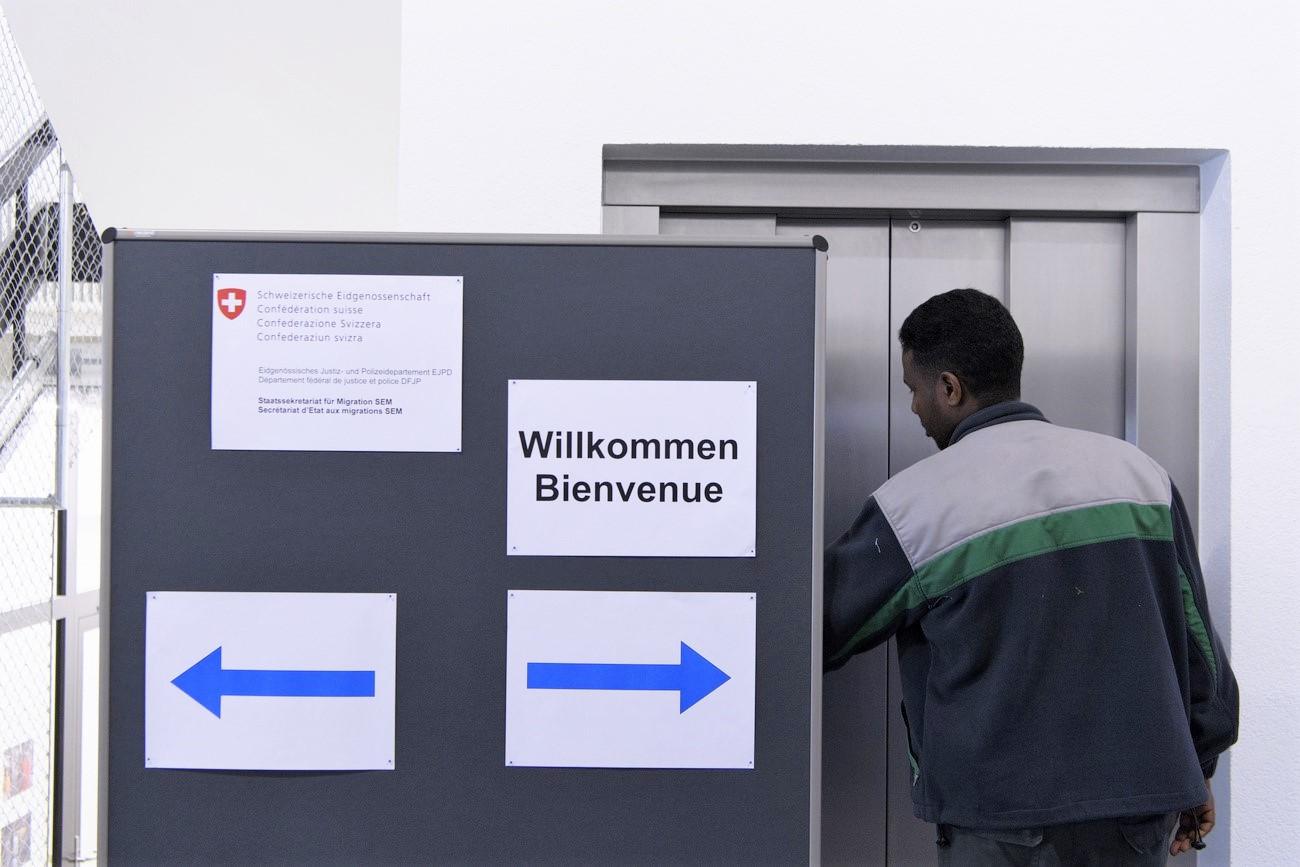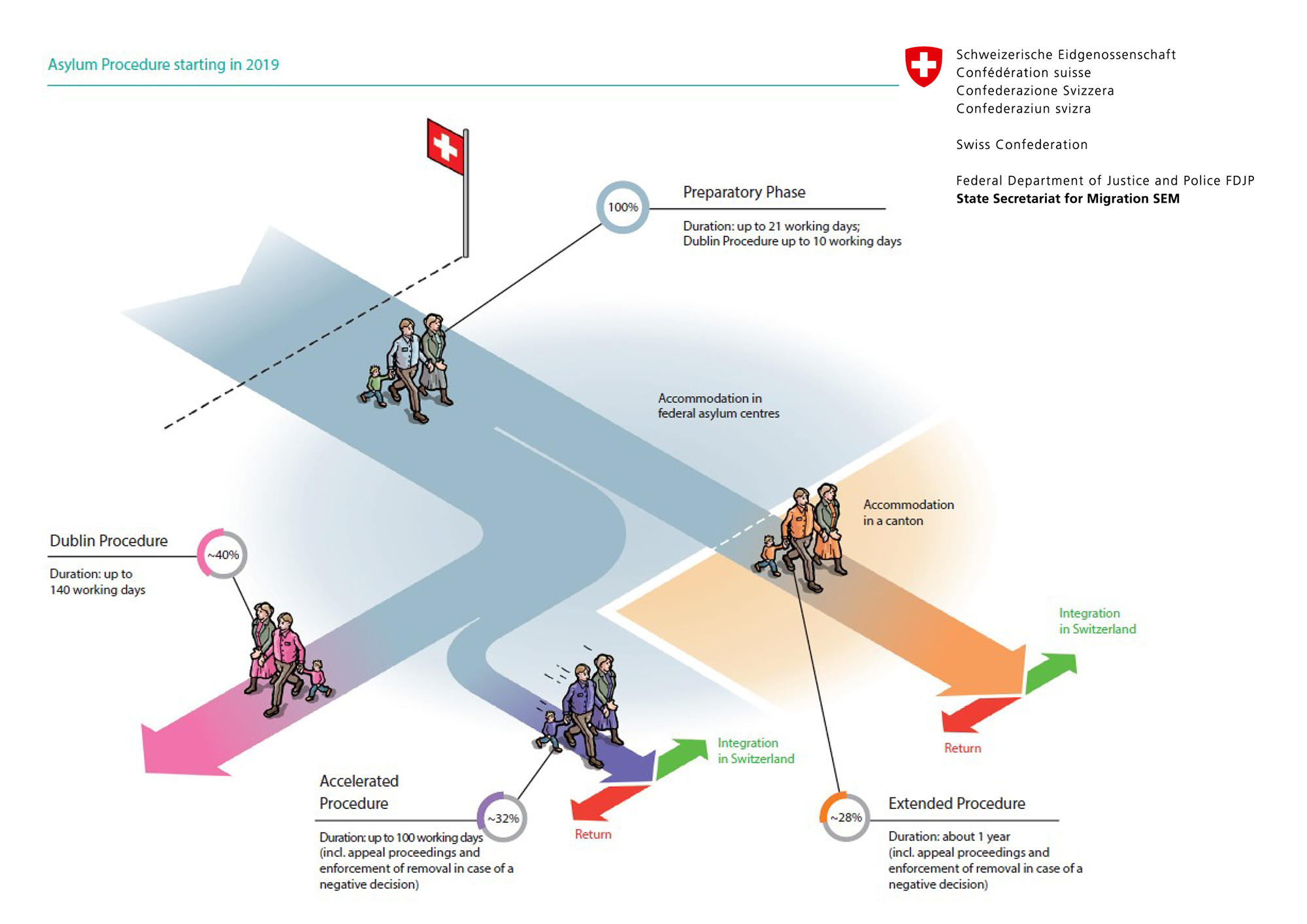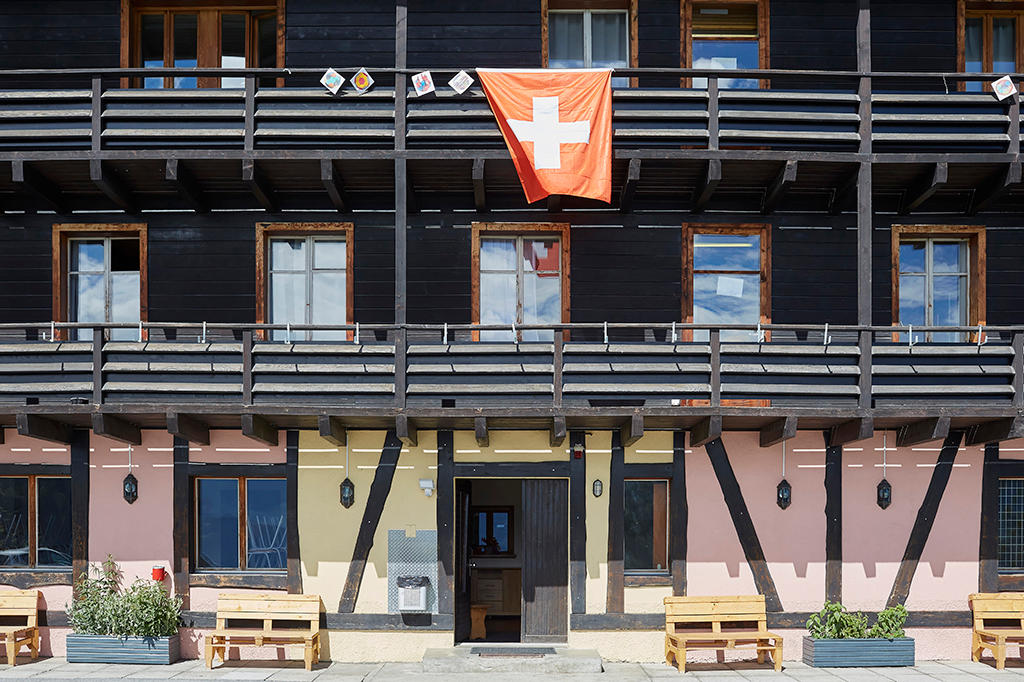How well does the new Swiss asylum system work?

The Swiss asylum process was streamlined in March, but critics have raised serious objections.
The reform, which aimed to create a more efficient process, was accepted by two-thirds of voters in a nationwide ballot in 2016 and came into effect across Switzerland on March 1, 2019. The introduction was staggered over several phases.
As part of the overhaul, the asylum process must in principle be completed within 140 days. It ends with the deportation of asylum-seekers whose requests have been turned down.
Asylum centres have also been reorganised.
People who have filed a request for asylum in Switzerland are allocated to one of six national centres across the country. Most asylum-seekers stay in the same accommodation while their applications are examined.
Some applicants, however, are transferred from a national to a cantonal centre as their requests need more time to be processed.

The requirements to qualify for asylum status in Switzerland did not change with the reform.
What has changed is the time the authorities are given to process a request: about 70% of all the decisions handed down come within 140 days. Applicants have the right to free legal aid and to be represented by a lawyer throughout the procedure.
The deadline for filing an appeal against a decision by the authorities has been cut from 30 days to seven days under regular conditions. The deadline of 30 days remains unchanged for applicants whose requests need more time to be examined.
The stated aim of the authorities is to speed up the asylum procedure to ensure that rejected asylum-seekers leave Switzerland and that those who are granted asylum can be integrated into society without delay.
In an effort to increase efficiency, national accommodation centres have been set up to house not only asylum-seekers but also legal advisors and State Secretariat for Migration staff dealing with the requests.
The idea is to avoid drawn-out procedures which keep asylum-seekers waiting for an official decision for several years and without the possibility to work or integrate into society.
Another aim is to cut government spending on asylum.
The State Secretariat for MigrationExternal link says it does, but a report in October by Swiss public television, SRF, suggests that the Federal Administrative Court has annulled numerous asylum decisions since the amended law came into force eight months ago.
Between 2007 and 2018, the judges sent back 4.8% of all asylum decisions for re-examination. This figure has surged to 16.8% since March. Critics therefore argue that the new asylum procedure is by no means more efficient than the old law.
The national asylum authorities have acknowledged shortcomings in the system, but they add that a higher rate of cases for re-examination is inevitable in the wake of a major reform.
Numerous refugee advocacy groups, legal experts and volunteers have been very critical of the reform from the beginning. They argue it is no longer possible to examine an asylum request in depth under an accelerated procedure. A case in point, they say, is that the court has thrown out several decisions on the grounds that the migration authorities did not invest enough time to check an asylum-seeker’s health.
Critics also point to the low protection level of the free legal aid available to asylum applicants. The deadlines are too strict and several legal aspects are not covered at all, they say.
Another concern are the living conditions in the national accommodation centres, notably their location in isolated regions. Asylum-seekers under restraining orders are most affected by the policy, there are often restrictions on visits from outside, placements are considered inadequate and access to healthcare is limited.

More
Behind closed doors: where refugees call home in Switzerland
Adapted from French/urs

In compliance with the JTI standards
More: SWI swissinfo.ch certified by the Journalism Trust Initiative














You can find an overview of ongoing debates with our journalists here . Please join us!
If you want to start a conversation about a topic raised in this article or want to report factual errors, email us at english@swissinfo.ch.